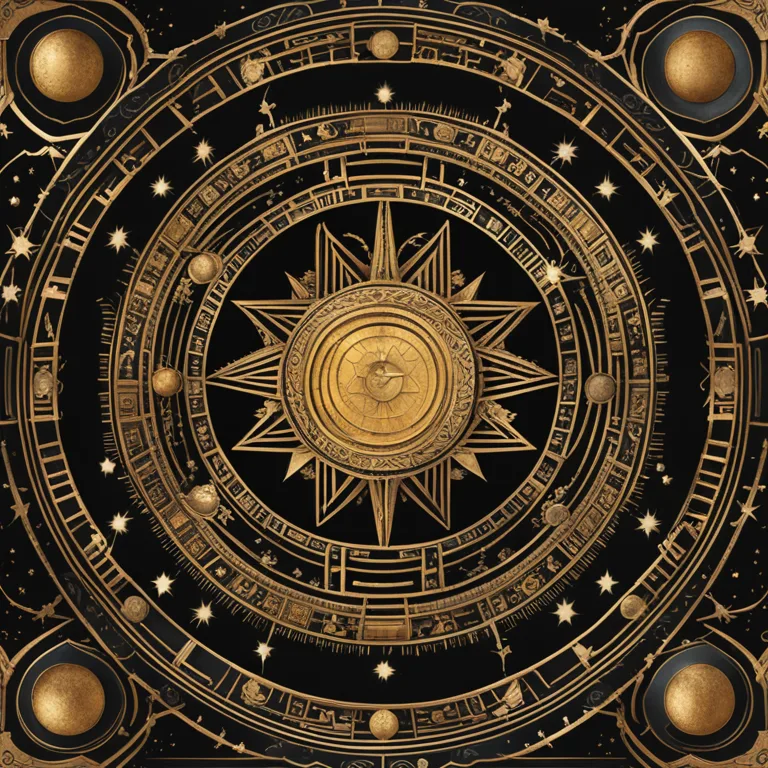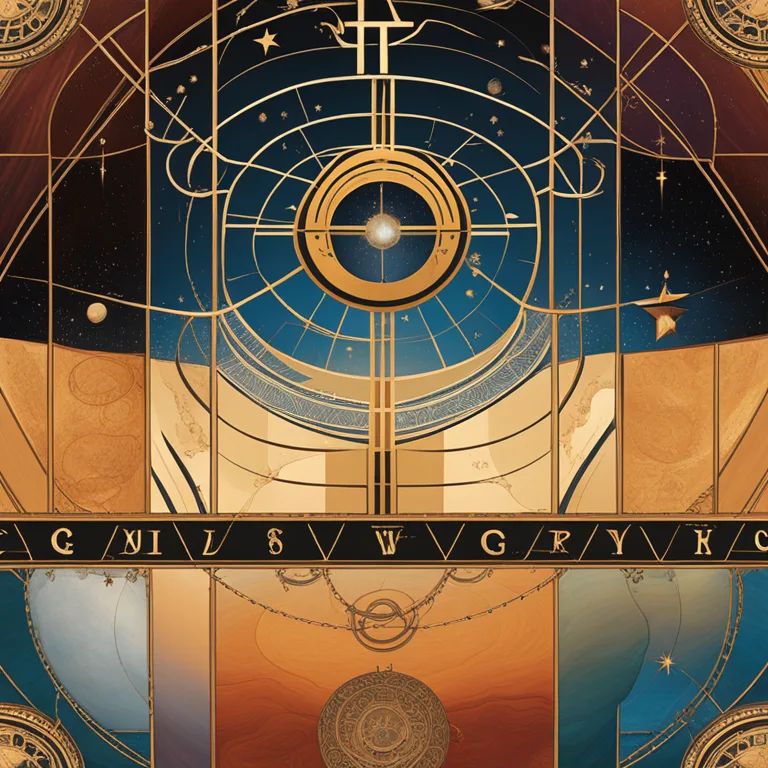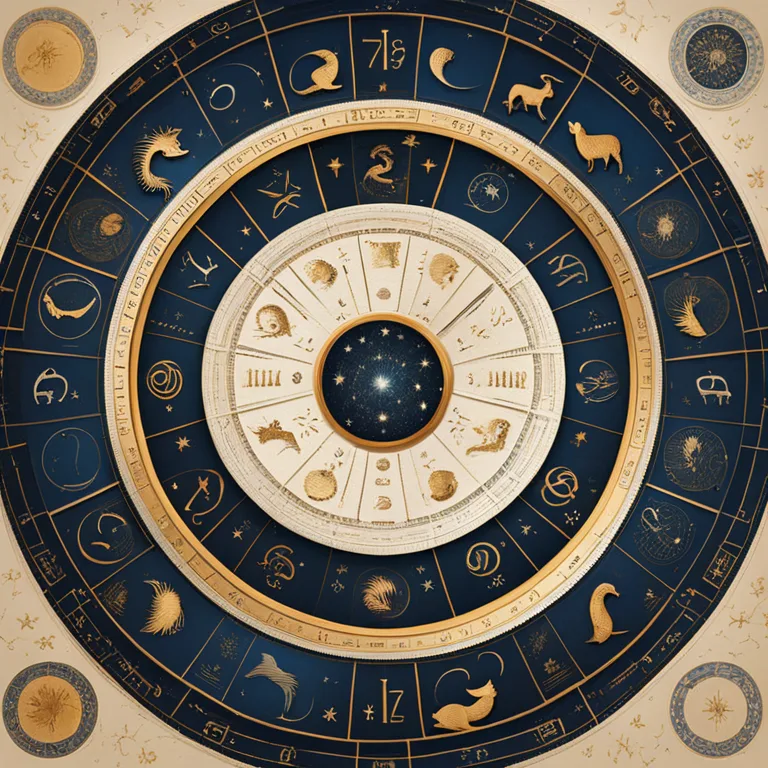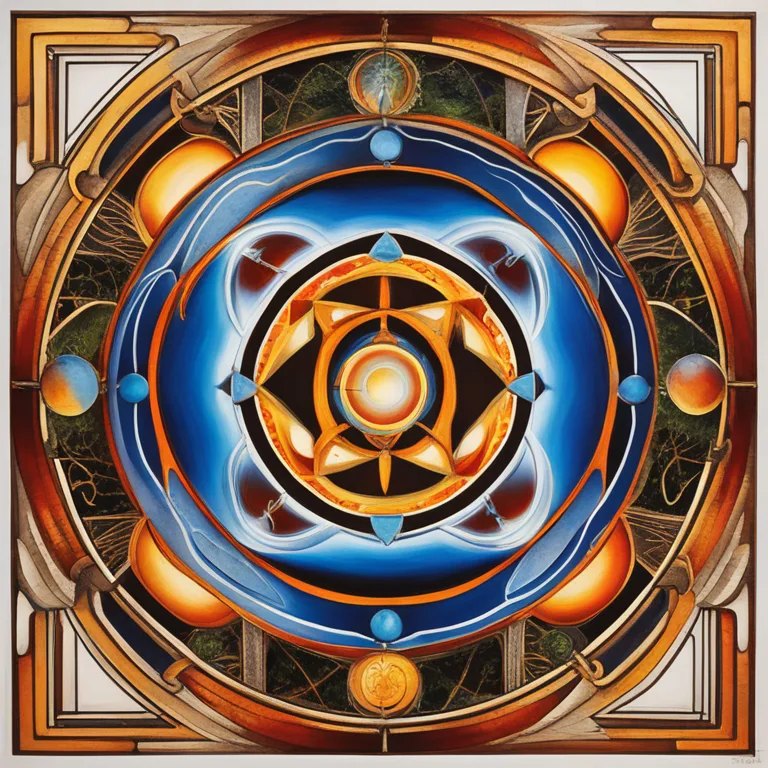
The Roots of Astrology: An Ancient Journey
Dive into the linguistic origins of astrology, from ancient skies to modern interpretations, and discover the etymology of a practice that has fascinated humans for millennia.
article by Priya Deshmukh
The Ancient Language of the Stars
To understand the intricate language of astrology, it is essential to delve into its etymological roots. The word "astrology" itself is derived from two Greek terms: 'astron,' meaning 'star,' and 'logos,' meaning 'word,' 'reason,' or 'plan.' In essence, astrology is the study or the 'word' of stars. This ancient practice, reaching back thousands of years, sought to interpret celestial patterns as they relate to human events and personalities. The tradition of scrutinizing the skies spans across civilizations, each adding its own lexical contributions to the astrological lexicon.

The Zodiac and Its Linguistic Constellations
The zodiac is a fundamental aspect of astrological tradition, a circular array of twelve distinct constellations through which the sun, moon, and planets appear to move. The term "zodiac" comes from the Greek 'zōidiakos,' which means "circle of animals," reflecting the vivid patterns recognized by ancient astronomers. These constellations were not only visual marvels but also held prognostic significance, which has evolved into the horoscopic astrology familiar to us today.

Planetary Names and Myths
The nomenclature of planets in Western astrology is deeply rooted in Roman mythology, with each planet's characteristics linked to the traits of their divine namesakes. For instance, Mars, named after the Roman god of war, symbolizes aggression and conflict in astrological interpretations. This intertwining of celestial and mythological semantics enriches the narratives provided by astrologers as they craft personalized horoscopes.

Elements and Energies
Astrology also categorizes signs into four elements: fire, earth, air, and water. This division has roots in ancient philosophies regarding the energies of life and the cosmos. The symbols for these elements still influence astrological predictions, with each element determining a facet of an individual's temperament and outlook in a horoscope, proving evidence of astrology's constant evolution and adaptation to cultural understandings of nature and science.

Horoscopes and Modern Times
When writing forecasts for 2024 onwards, astrologers interpret transits, aspects, and alignments to draw insights. Contemporary technology allows us to precisely calculate planetary positions, but the language of predicting trends and providing guidance remains steeped in tradition. Despite evolving terms and a more sophisticated grasp of the heavens, astrologers continue to speak an age-old dialect of potentiality and cosmic influence.
The Integration into Digital Linguistics
As astrology adapts to the digital age, new terminologies emerge, melding the old with the new. Online platforms, apps, and websites dedicated to astrological studies are crafting a fresh lexicon while paying homage to their etymological ancestors. This mingling of vocabularies speaks not only to astrology's resilience but also to its timeless fascination.
Published: 12/29/2023
Modified: 12/29/2023
More predictions
Come back here soon to learn more about yourself and your future


The Influence of Birth Date on Your Astrological Profile
Discover how your birth date shapes your astrological sign, personality traits, and cosmic destiny in the astrological realm.


Love Compatibility Through Astrology
Discover how astrology guides love compatibility, building deeper connections using the stars' wisdom.


Moon and Rising: Astrological Identity Revealed
Learn the impact of your Moon and Rising signs in astrology on personal traits, emotional responses, and life’s journey.